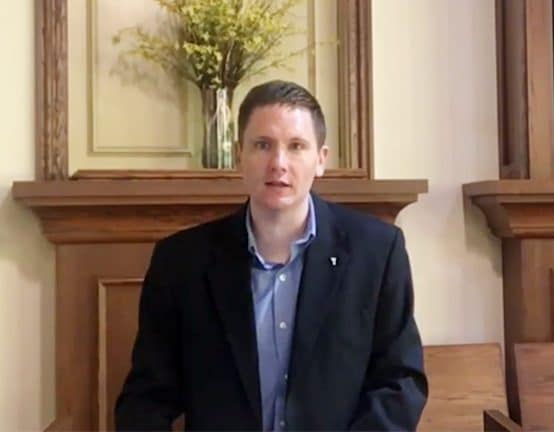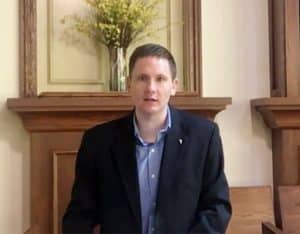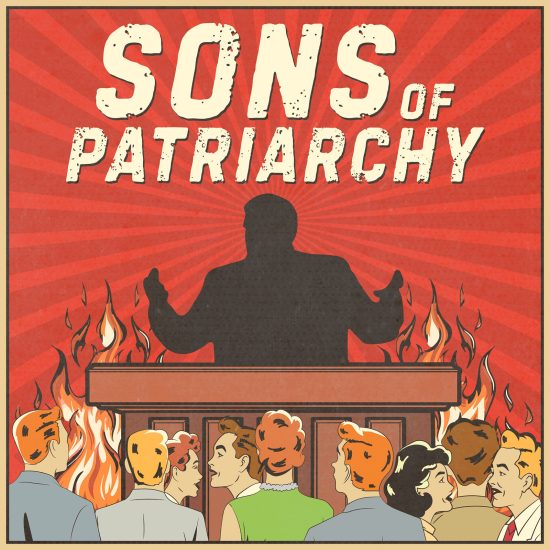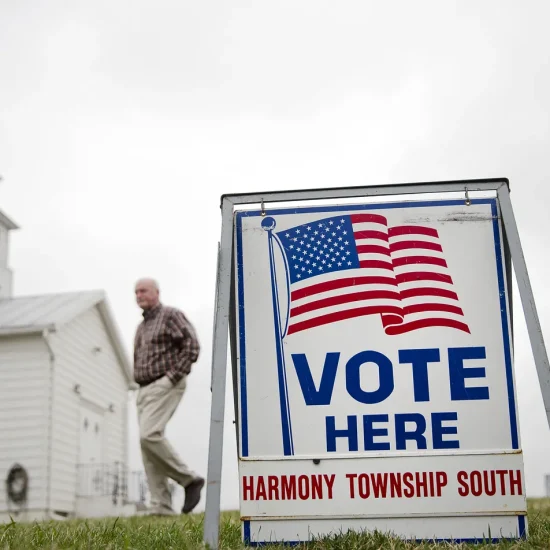
I am afraid.
This is not a confession pastors are supposed to make.

Screengrab of Beau Underwood preaching during online service on May 10.
Like my clergy colleagues, I am deeply worried about the physical and spiritual well-being of God’s people. We want our members — and everyone else — to remain strong in body and spirit through this difficult season. The work of ministry has become much more challenging when gathering as a community is perceived as a threat rather than a source of sustenance.
The pandemic requires religious leaders to make decisions in great uncertainty and with possible consequences fraught with danger. Do we resume in-person worship so that our members can find the spiritual nourishment they crave and the formation in faith they need? Do we continue depriving them of those experiences because the physical risks remain too great?
Before you lecture me that this is a false dichotomy, I will gladly acknowledge your point. We can preach, praise, and teach online, but I would much rather be physically together. I am exasperated with being the First Church of Zoom.
In the community where I pastor, some churches forged ahead with holding worship services as soon as legally allowed while others, including my own congregation, have been more cautious. While every congregation must weigh the expectations of its membership and the circumstances of this present moment, I suspect there is something else lurking underneath whatever decision is reached.
There is a fear about institutional survival.
What if nobody comes back? What if people get used to Sunday mornings without church? If we come back too soon will that alienate our risk-averse members? If we wait too long will my folks become Methodists or Lutherans instead?
My colleagues in ministry are profoundly committed to sharing the Gospel, making disciples, and helping their members transform faith into action. We believe God has commissioned the Church to carry on this work and witness until Jesus returns. The mission of the Church exists independent of our efforts and desires.
Yet, we are also human. We are judged by the health and vitality of the congregations we are called to lead. And, long before the pandemic’s arrival, these institutions were facing a tough moment.
Polls indicate what our empty pews reveal: The percentage of Americans identifying as Christians is rapidly declining. Fewer people are joining churches, and those who do are attending less often. The individualism and consumerism of contemporary American life have warped our relationship with religion and the traditional communities that foster its practice.
Instead of letting faith guide our lives, we compartmentalize our beliefs whenever they become an inconvenience. We trust religious leaders less to form us in faith and we grow angry when they challenge our preferred ways. The unspoken purposes of church are to affirm our tastes, legitimize our preconceptions, and serve as a healing balm whenever our world goes awry.
Nobody in the world today likes being told what to do. Whether the directive comes from an elected official, a scientific expert, or a religious leader is irrelevant. We now live in a world where the only legitimate authority is ourselves.
This is an existential issue for pastors called by God to build up and nurture Christian communities.
The problem is right there in the phrase. “Christian community” implies a standard beyond ourselves. Our lives are to be measured not by our desires but by how well they reflect the life, death, and resurrection of Jesus Christ. That phrase also connotes mutual obligation and accountability. To be in a community involves caring about what others think and need in ways that alter your own feelings and actions. To participate in the life of Christ’s Church today is a radically countercultural act because our society now worships at the altars of our own egos.
That’s why I am scared that the effects of this pandemic will be long-lasting for our religious communities. People are going to realize that home is the easiest place to stand in awe and praise of themselves.
This fear does not mean that I have given up hope. Quite the opposite, in fact. My anxiety from this pandemic has given me a new appreciation for the ministry the church undertakes in Jesus’s name.
Those of us within the church must know our story and communicate our convictions now more than ever. This has to be done in ways that invite people to see how foolish it is to have made idols of themselves and invite them into the abundant life offered to us through Jesus Christ. But all this has to be done in a way that explicitly says “being part of this community comes with expectations and those expectations come with costs.”
After all, the church was born of sacrifice. Jesus’s invitation to take up our cross and follow was coupled with the promise that finding life requires us dying to ourselves (Matt. 16:24-26). That’s a tough message to share in the me-centric culture of our day.
This pandemic will eventually pass. A sense of normalcy will return. Churches will gather for worship in ways that do not require us to be six feet apart.
My prayer is that absence will have made the heart grow fonder.
So, let’s get back to church. Not just to the building but to the way of Jesus that demands everything from us and promises us everything God has to offer. It is the way of perfect love that drives out fear.






